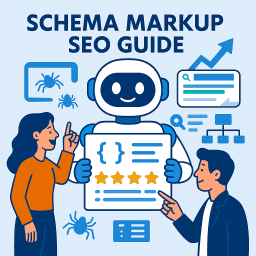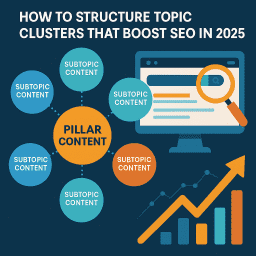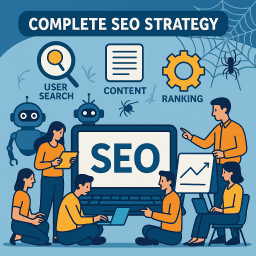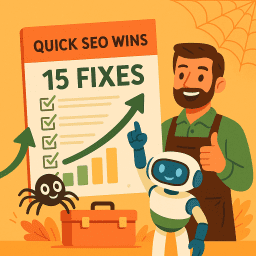Crawl Budget Explained: How It Affects SEO in 2025
🕷️ Understand how Googlebot spends time on your site — and why it matters
🕷️ Crawl Budget: The Hidden Factor in SEO Success
Crawl budget refers to the number of pages Googlebot is willing and able to crawl on your website within a given time frame. While most small to medium-sized sites don’t need to obsess over it, understanding crawl budget is essential for larger sites or those with technical SEO issues. It helps ensure that your most valuable pages get crawled and indexed regularly.
🚀 Why Crawl Budget Matters in 2025
- 📉 Minimises wasted crawl time on low-value or duplicate pages
- 🚀 Ensures important content is discovered and indexed quickly
- 🧠 Aligns with Google’s increasing reliance on structured, prioritised content
As Google continues refining how it crawls and indexes the web—especially with AI playing a bigger role—your site’s crawlability and content prioritisation have never been more important.
🛠️ What Affects Crawl Budget?
- 📍 Site Size: Larger sites naturally need a higher crawl budget
- 🚫 Duplicate Content: Repetition wastes resources and reduces efficiency
- 🐌 Page Speed: Slow-loading pages can reduce how much Googlebot crawls
- 🔗 Internal Linking: A well-structured internal link strategy helps Google discover your content
- 🔄 Redirect Chains: Too many redirects create bottlenecks and slow down crawling
✅ How to Optimise Crawl Budget
- 🚪 Block Unimportant Pages: Use
robots.txtto stop crawling of login pages, admin panels, and other low-value areas - 🧹 Clean Up Redirects: Remove or simplify long redirect chains
- 🕸️ Fix Broken Links: Broken internal links waste crawl attempts
- 🚫 Avoid Duplicate Pages: Consolidate similar content or use canonical tags
- 📈 Submit Updated Sitemaps: Keep your sitemap clean, current, and focused on index-worthy URLs
🔍 How to Check Crawl Stats in Google Search Console
Google Search Console provides a Crawl Stats Report under the “Settings” tab. Here you can see:
- 📅 Total crawl requests per day
- 📄 Average response times
- 📈 Crawl type breakdown (desktop, mobile, images, etc.)
Use this data to identify spikes, slow response times, or areas of your site Google seems to be ignoring.
🤖 Crawl Budget in an AI-Driven Search Landscape
As AI-generated results become the norm (e.g., Google’s AI Overviews), Google prioritises fresh, accurate, and structured data more than ever. If your key content isn’t crawled regularly, it won’t be surfaced by AI tools that rely on up-to-date information. A healthy crawl budget ensures your site stays in the loop.
🚫 Common Mistakes That Waste Crawl Budget
- ❌ Allowing faceted URLs or session IDs to be crawled
- ❌ Ignoring pagination or parameter handling
- ❌ Leaving old, orphaned pages indexed and linked
- ❌ Relying solely on XML sitemaps and neglecting internal linking
🧠 Expert Tip
Google doesn’t give every site the same crawl resources. Your crawl budget is influenced by your site’s authority, speed, and technical health. Optimising crawl budget is about reducing waste and improving efficiency—not tricking the system.
✅ Conclusion
Think of crawl budget like Googlebot’s time on your site—it’s limited, so make it count. By tightening your site structure, cleaning out the junk, and guiding bots to your best content, you’ll improve indexing speed, coverage, and ultimately, your SEO performance.
“Every crawl is a chance to prove your site’s value. Don’t let Google waste its time on content you don’t care about.”
— David Roche
📝 Recap and Clarify: Post-Specific FAQs
What is crawl budget in SEO?
Crawl budget refers to the number of pages Googlebot is willing and able to crawl on your website within a given timeframe, based on server performance and site value.
Why does crawl budget matter in 2025?
With Google focusing more on quality, sites with bloated or poorly structured content may waste crawl budget, leaving important pages unindexed or delayed in updates.
How do I know if I have a crawl budget issue?
Check Google Search Console’s crawl stats report. If important pages aren’t indexed or crawl frequency is low, you may have a crawl efficiency problem.
Do all websites have crawl budget limits?
Technically, yes—but smaller websites rarely hit their limit. Larger sites with thousands of URLs are more likely to experience crawl budget constraints.
What affects my site’s crawl budget?
Factors include server performance, internal linking, duplicate content, redirect chains, low-value pages, and how often your site is updated with new content.
How can I optimise my crawl budget?
Use a clean site structure, fix broken links, limit duplicate pages, block low-value URLs via robots.txt, and submit sitemaps through Google Search Console.
Does a fast-loading site improve crawl budget?
Yes. Faster websites can handle more crawl requests from Googlebot, which often results in better indexing coverage and more frequent content updates.
Should I worry about crawl budget on a small site?
Not usually. For sites with fewer than a few thousand URLs, crawl budget is rarely an issue unless major technical errors exist.
Can poor internal linking affect crawl efficiency?
Absolutely. If important pages are buried too deep or orphaned, Google may miss them during crawls. Use clear, logical internal linking to guide crawlers.
How often does Googlebot crawl a site?
It varies. Popular, fast, regularly updated sites are crawled more often. Crawl rate depends on site authority, performance, and update frequency.


















